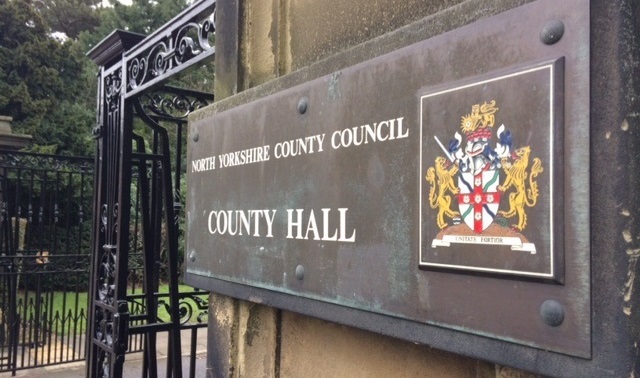
North Yorkshire County Council is examining increasing a range of demand-responsive public transport solutions as part of its drive to cut carbon emissions, councillors have heard.
As Prince Charles outlined an initiative to encourage rapid decarbonisation at the World Economic Forum, members of North Yorkshire County Council’s climate change scrutiny committee heard numerous calls for the authority to speed up its action to improve its environmental credentials.
The meeting was told the authority had made significant progress in reducing its carbon footprint over the past four years, but that the “low hanging fruit” had been picked.
Officers warned that future carbon savings would come at a greater cost to the authority, which by 2021/22 the authority will have delivered in the region of £200 million in savings since 2011.
Councillor Bryn Griffiths told the meeting while he had hoped the council would set the agenda on single-use plastics, he was still waiting for a response to a notice of motion put forward to a full meeting of the authority in 2018 calling for banning single-use plastics to be banned.
The notice, which was tabled 15 months ago, stated the council should work in partnership with its suppliers and contractors to support for plastic-free initiatives and phase out single use plastic in council premises within two years.
Cllr Griffiths said: “That’s like kicking it into the long grass. Nothing’s happened. The environment is crying out for plastics to be taken out of it and we need to be prioritising that type of work.”
The council’s officers said the motion had gone on the work programme for the transport, economy and environment scrutiny committee, but “has not been addressed yet due to more pressing matters”.
They added another council body was looking at the notice of motion process to see if scrutiny committees needed to respond in a more timely way.
The meeting heard as part of its drive to become a net zero carbon footprint authority by 2030 it was considering significant changes to public transport.
Until now the council has only supported a limited amount of demand-responsive transport – pre-booked transport that uses taxis or minibuses to provide transport to areas that are not served by conventional bus services – despite facing numerous calls from campaigners in rural areas.
The authority’s assistant director of transport Ian Fielding told the committee a demand-responsive transport trial was scheduled.
He said: “We are beginning to think now is there a better way of doing it?
“The last thing we want to be doing is subsidising empty buses. Some of them are not as fully occupied as we might like so we have to subsidise them because they are not commercially viable. We are looking with a lot of interest at demand responsive services.”


Be the first to comment